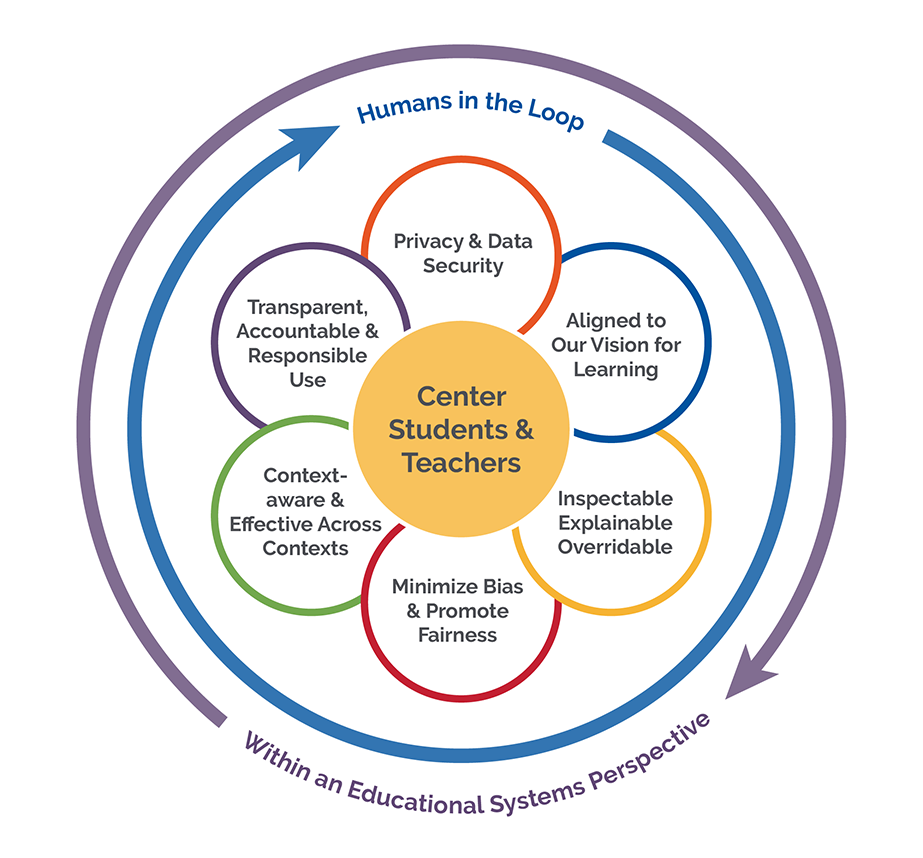National Guidelines
AI and the future of teaching and Learning
In May 2023, the U.S. Department of Education Office of Educational Technology published a report including insights and recommendations.
Feel free to read the full report: Artificial Intelligence and the Future of Teaching and Learning.
 Key Insights:
Key Insights:
-
AI enables new forms of interaction.
-
AI can help educators address variability in student learning.
-
AI supports powerful forms of adaptivity.
-
AI increases existing risks and introduces news risks yet to be considered.
Recommendations:
1. Emphasize Humans-in-the-Loop.
2. Align AI Models to a Shared Vision for Education.
3. Design AI Using Modern Learning Principles.
4. Prioritize Strengthening Trust.
5. Inform and Involve Educators.
6. Focus R&D on Addressing Context and Enhancing Trust and Safety.
7. Develop Education-specific Guidelines and Guardrails.
On Day 1, it is highly recommended to follow these steps to ensure a your students are aware of your position in using/not using AI generative content in your course:
-
Set Expectations:
- Engage students in a discussion about AI to establish their understanding and expectations.
- Address the importance of accuracy and reliability when utilizing AI-generated content.
- Familiarize students with AI tool navigation to promote ease of use throughout the course.
-
Critical Media Literacy:
- Help your students understand the importance of evaluating AI sources effectively. Feel free to use Critical Media Literacy Guides or encourage them to join the events/sessions on AI literacy.
-
Code of Conduct and Academic Integrity:
- Discuss the code of conduct, plagiarism, and academic dishonesty with students.
- Emphasize that submitting AI-generated work without proper citation is considered plagiarism.
- Familiarize students with APA/MLA citation guidelines for referencing AI-generated content.
-
Ethical Use of GPT Generated Content:
- Encourage an open discussion about students' views on using GPT-generated content in the course.
- Help students decide on their own AI writing policy/guidelines for responsible usage.
-
Syllabus Expectations:
- Set clear expectations in your syllabus regarding the integration of AI in the course.
- Include a statement outlining the guidelines and policies related to AI usage.
-
Build Relationships/trust with Students:
- Take the opportunity to build positive relationships with your students from the start.
- Foster a supportive and engaging learning environment through communication and interaction.